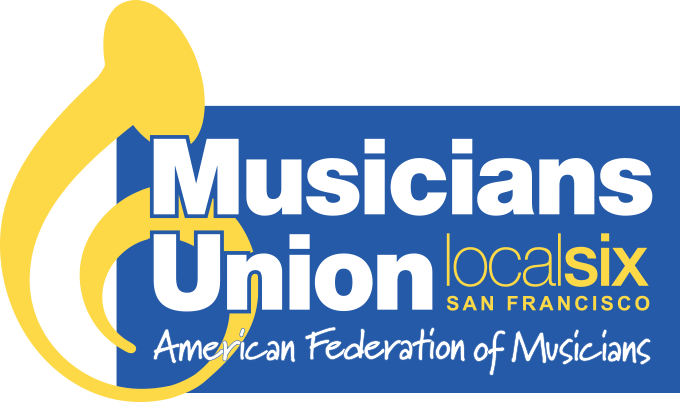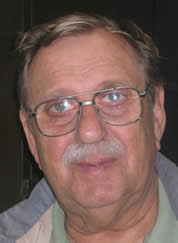“Heeeeeelllllllllllloooooooo. This is Waaaaaaaalllllllddddddoooooooooo.”
Waldo Carter is a trumpet player who has worked with a long list of legendary musicians and bands, including Tony Pastor, Harry James, and Duke Ellington. He continues to play gigs here in the Bay Area as a side musician and bandleader.
Waldo was born in Rockford, Illinois in 1934. When he was four, his mother, a piano player, encouraged him to play. Waldo surprised his family with his musical ability, but because he was afflicted with deteriorating eyesight, he was held back from entering school. When he was nine, his family brought him to an Eagles Club meeting, where Waldo was fascinated by the band. The trumpet player invited him up to the bandstand to watch, and then offered to sell him a trumpet for five dollars. Waldo took him at his word, working all the odd jobs he could until he raised the money. He then shocked the trumpet player a few months later when he showed up at his house, cash in hand.
Waldo says he learned how to play the trumpet in one week. He didn’t know what he was doing, but he could play it. It broke after a year or two, and Waldo did not get another until high school, where he played in the marching band and at school dances. Unable to read music because of his eyesight, he became known as a talented improviser. By the age of seventeen, Waldo had decided he was going to be a musician. He saw no point in finishing high school because his eyesight made it nearly impossible for him to complete the physical education requirements. Instead, he answered an ad in Downbeat Magazine and was asked to join a band out of Omaha.
After a two month stint on the road, Waldo returned home to Rockford. He soon joined another Midwestern traveling band, and for the next few years toured with various groups. In 1957, Waldo was hired by Tony Pastor, Artie Shaw’s star tenor player. He stayed with Pastor for three years, until the band broke up, but continued to work for him occasionally for the next ten years. During his time with Pastor, Waldo kept noticing the work of Bill Potts, an established writer and arranger. Serendipitously, Potts happened to be in the audience for one of Waldo’s gigs. Waldo introduced himself during the intermission, and they became good friends.
In 1960, Waldo moved to New York, where he and Potts lived for awhile in a building full of musicians called the Nut Factory. Waldo remembers Potts telling a “screaming lunatic” who lived across the hall, and had asked him for voice lessons, to “give it up, @$#%.” A few months later, Barbara Streisand was starring in Funny Girl. During this time, Waldo worked casuals and toured in many groups, including the Tommy Dorsey Orchestra with Lee Castle, Billy May, Maynard Ferguson, Les Elgart, Teddy Phillips, Ralph Marterie, Buddy Morrow, and Si Zentner.
1966 was a rough year in New York, recalls Waldo. Musical styles had changed with the advent of the Beatles, and there wasn’t as much work. Waldo was at a musical crossroads. He let his hair grow out. He contemplated putting together his own group. He asked his friend Fred Lipschin to write for him, but Lipschin was busy writing for an unknown group that turned out to be Blood, Sweat, & Tears. Having had a hard time getting a group going, eventually Waldo got a call to go to Los Angeles to play with Louis Bellson backing up Pearl Bailey. From that he got a call to play with Harry James. When they did the Ed Sullivan show the camera was on Waldo constantly because he was the first “hippie” to play with James. Waldo became a celebrity overnight. Everywhere the band played people would point at him. Waldo’s look began to influence the band, and even James began wearing medallions and turtlenecks.
In 1968, after a show with James’ band in Reno, Waldo was asked to sit in with Duke Ellington. A few weeks later in Las Vegas, Waldo was asked to join Ellington’s band. Although this was Waldo’s dream come true, he turned it down because he did not want to sit in the trumpet section between Kat Anderson and Cootie Williams. They were both his friends, but mortal enemies of each other. Waldo realized that, if he sat between them, he’d be forced to take sides; and the person he did not choose would make his life miserable.
So, Waldo continued with Harry James as the ‘other solo trumpet player’. Because of the Ed Sullivan show, he was becoming too popular for James, and it was a problem. A few weeks later, Duke Ellington’s manager called and offered Waldo twice what he was getting with James. The only catch was that he would be replacing Ellington’s son, Mercer, on trumpet. Rather than have three trumpet players hating him, Waldo declined the offer.
Waldo finally left Harry James. He went to Las Vegas, and then to L.A., where he was looking to join another road band. Nothing came up. In early 1969, Waldo moved to San Francisco where he had a few contacts. He soon established himself in the casual scene. At that time, he met his dear friend, trumpet player Ernie Figueroa. He also got married. Eventually, Waldo began working the cruise ships. This led to playing with Ray Hackett’s band, one of the most popular big bands in San Francisco, and with the Ringling Bros. Circus. Always one to follow his muse, Waldo turned down a very high paying job with Guy Lombardo because he didn’t like the music. During this time, he started doing some contracting. His most notable job was putting together musicians for a tour with Cab Calloway, Anita O’Day, Ray Everly, and the Modinaires, with Ray McKinley fronting the band.
In 1974, Waldo started to form his own big band. He called on his friend Bill Potts to provide the music. Bill told Waldo that, if he brought him out to California, he would give him the music from his own twenty-piece all-star band in New York. This included a jazz band arrangement of Porgy and Bess. During rehearsals, Bill got so excited that he asked his Washington D.C. band to send its library, which included the music of Jerry Mulligan and Johnny Mandel. Competition was fierce at this time as there was a brief revival of big band music. Waldo made the best of it, playing dances at Bimbo’s and various other venues.
During the 70s, 80s, and 90s, Waldo continued to work casuals and to hire musicians – most notably, on a few occasions, for Frank Sinatra Jr. He also became dear friends with band leader Eddie Alley. Today, Waldo has dreams of getting his big band off the ground. He continues to build his music library and has commissioned an old friend, Bobby Ojeda, who played trumpet and arranged for Count Basie, to write music for him.
About his life so far, Waldo says, “I’ve had a wonderful time. I’ve played with some of the greatest musicians on the face of the earth, and I’m still working on it.”

